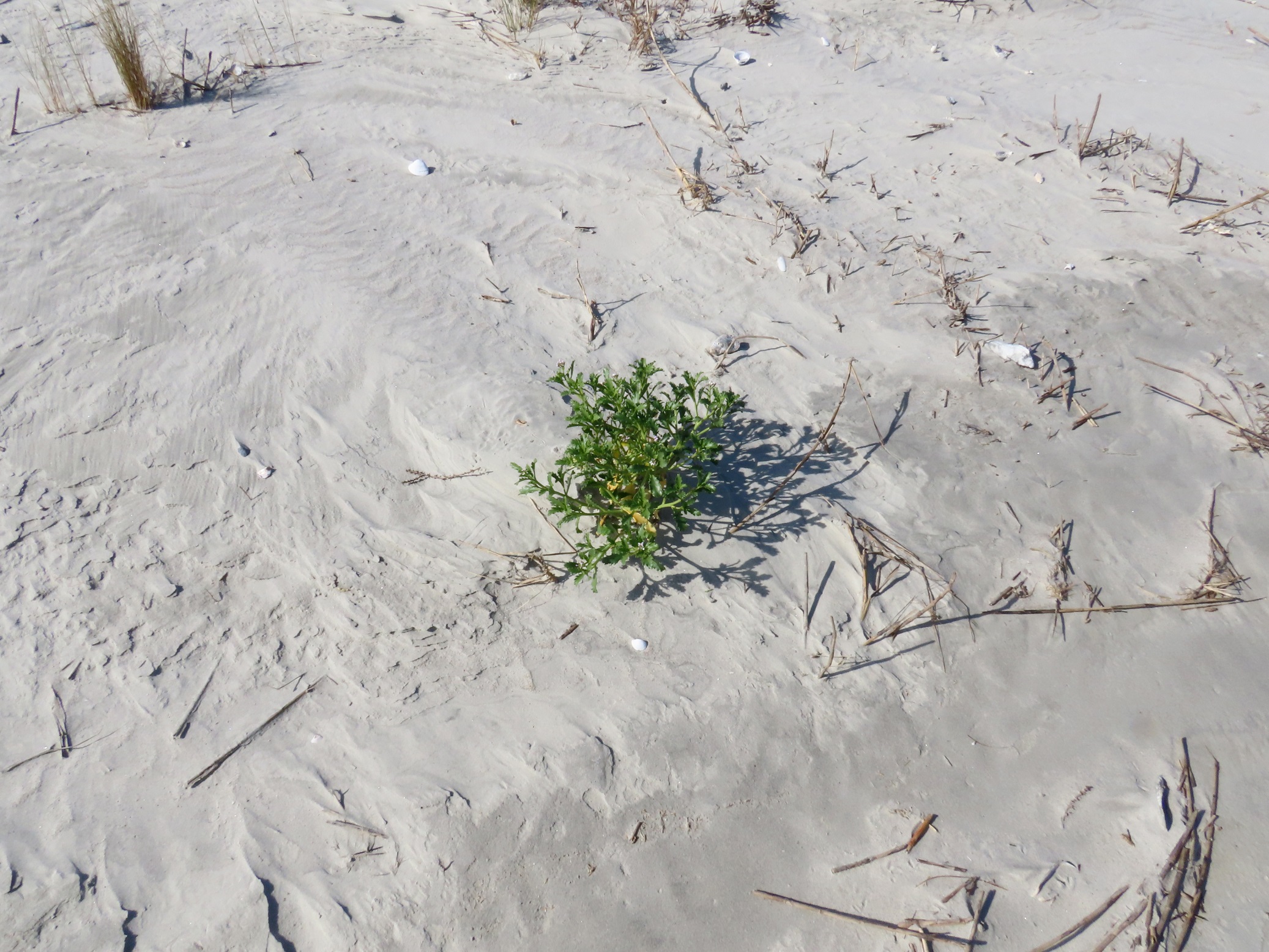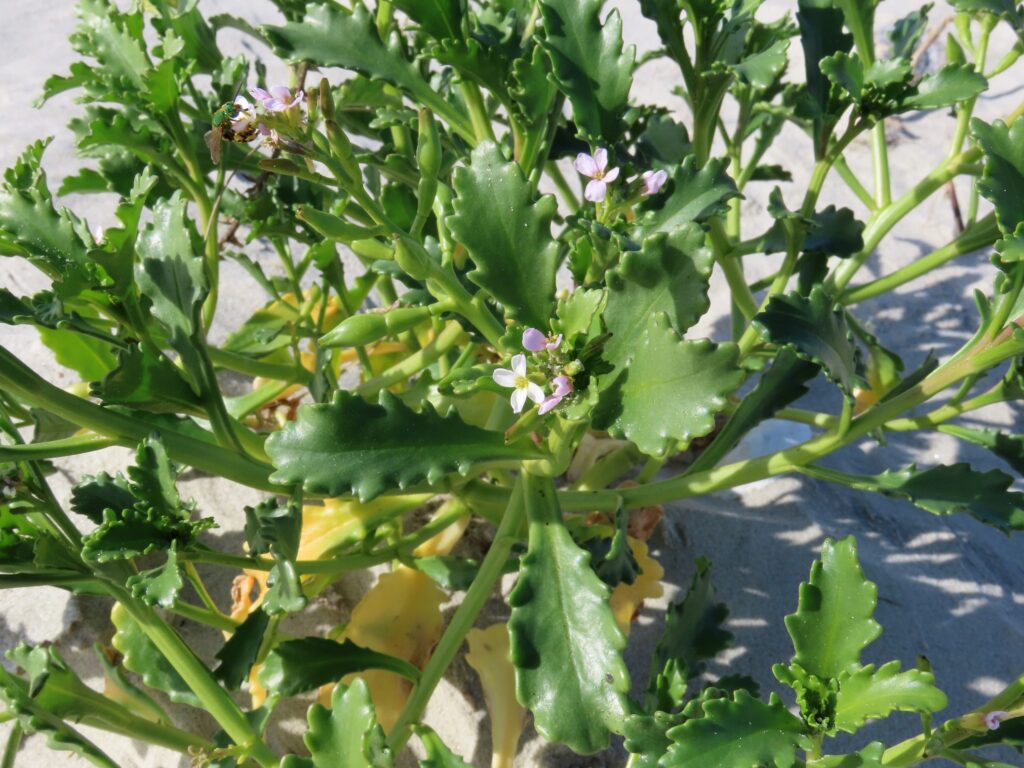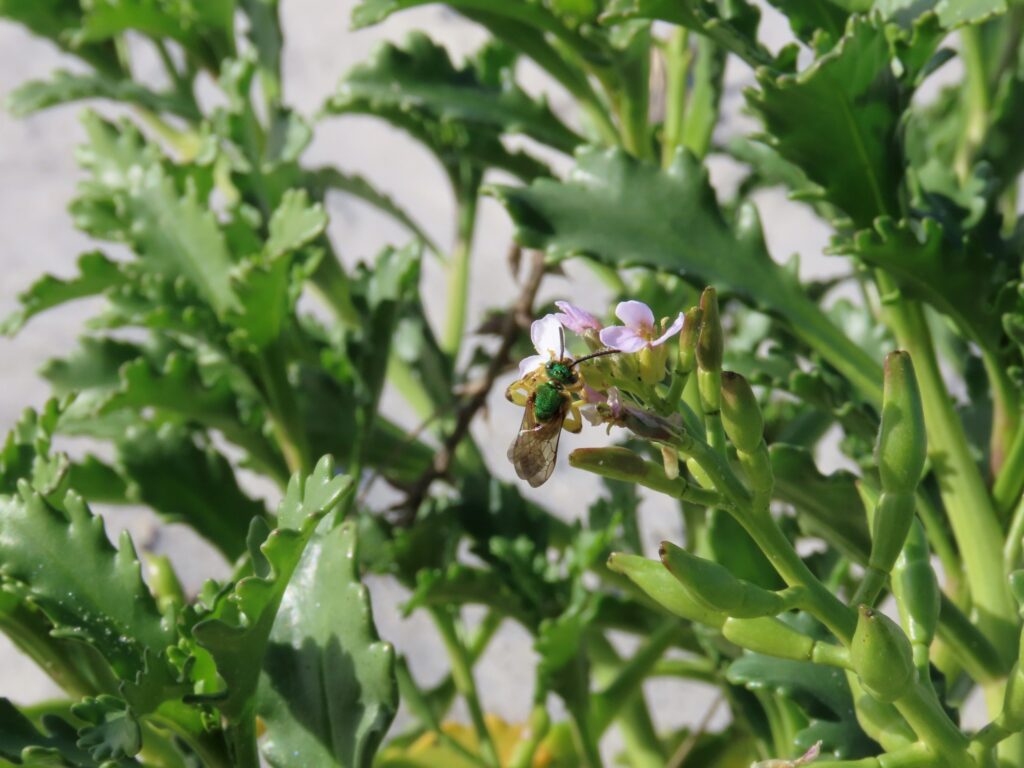


This week for Flora and Fauna Friday, we have a salty, succulent, seaside shrub, American Searocket (Cakile edentula).
Across the coast, over the dunes, and down upon the beach is where you’re likely to spy American Searocket. Searocket is well adapted to this habitat on the immediate coast, and I mean the immediate coast. It is pretty much only found right there on the beach, just above the wrack line, or on sand banks in the mouths of rivers. Searocket is an easy plant to identify. It’s a member of the Mustard family, Brassicaceae, and looks a lot like its condiment cousins. Searocket is compact with a fleshy stem and thick, emerald-green leaves sporting a toothed margin. Its leaves are edible raw or cooked. Searocket flowers are small, four-petalled, and light-pink to white. The flowers are pollinated by a myriad of beach-going insects and mature into a spike of pointed seedpods. The seeds are dispersed both by the ever-present sea breeze and the tides of the Atlantic. Searocket doesn’t like freezing temperatures and can live as either an annual, biennial, or perennial depending on the climate. Here on Edisto, it tends towards the latter two.
You may be wondering what the name “Searocket” has to do with this plant. The term rocket originated from “rochetto”, the Italian word for spools, coils, reels, and other generally cylindrical objects, like shuttles used in weaving. When you look at Searocket, you’ll notice it has cylindrical or “shuttle-shaped” seedpods. Those seedpods are where the plant got its common name. That Italian word was applied generically to radishes, mustards, and the like. Somehow, someway, the term made its way into the English lexicon to refer to this plant and its close relatives, without any of the context. (Sort of like how the German word for “Sea Radish” morphed into the English word “Horseradish”.) Later, when the west first learned of eastern rocket technology, the same Italian term was used to describe those rockets’ shape, which was like a loom’s shuttle. So both rockets and Searockets get their names from that same Italian word, in reference to a distinct shape they have.